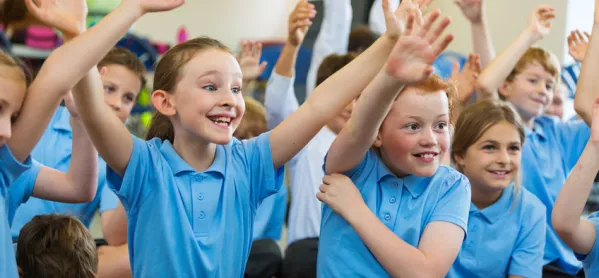Fines for parents who refuse to send their children to England’s schools will only be used as a “last resort” as classes resume after the coronavirus shutdown.
School standards minister Nick Gibb said there was a “moral imperative” for children to attend classes when schools reopen next month.
Preparations for the return of England’s schools come with education secretary Gavin Williamson under intense pressure following the fiasco over the awarding of A-level grades.
Williamson: Parents will be fined over pupils’ non-attendance from September
Coronavirus: Children over the age of 12 ‘should wear masks’
Teachers: School staff told they are not at greater risk of Covid-19 death
Prime minister Boris Johnson has led calls for parents to send their children back to class and the UK’s chief medical officers have said youngsters are more at risk of long-term harm if they do not attend school than if they return.
Coronavirus: The threat of fines when schools reopen
Mr Gibb acknowledged that some parents would still have concerns but stressed that education was compulsory and fines could be used if necessary.
“Fines for non-attendance have always been a last resort for headteachers and schools,” he told BBC Radio 4’s Today. “What matters is that young people are attending school.
“We live in a country where education is compulsory and I think parents can be reassured that the measures that schools are taking to make sure that we minimise the risk of the transmission of the virus are very effective.”
Local authorities can fine parents £120 - cut to £60 if paid within 21 days - over a child’s absence from school, with the threat of prosecution if they fail to pay.
Mr Gibb said if parents had concerns they should be able to discuss them with headteachers.
“But it is important - it’s a moral imperative - that young people are back in school, because what the chief medical officers are saying now is that the risk of not being in school outweigh the very small risk of children being in school, particularly given all the control measures - the hygiene, the cleaning that’s taking place in our schools … There’s an absolute determination to make sure that schools are safe for the children and children want to be back.”
Shadow education secretary Kate Green accused the government of going “missing in action” and being “asleep at the wheel”.
She told ITV’s Good Morning Britain: “The guidance that’s been given to schools is one-size-fits-all. It doesn’t take account of the fact that a small school, perhaps in very constrained premises, will have to make different arrangements from a large inner-city school.
“There hasn’t been information for school leaders so they can’t plan what they might have to do if there was a sudden spike in the local infection rate, and the guidance that has come out, I think, has been - it’s been contradictory, it’s been confusing, it came very late, shortly before the summer holidays.”
Many pupils in England have not been to class since March, when schools were closed except to look after vulnerable children and those of key workers.
Schools in Scotland reopened earlier this month, while those in Northern Ireland were welcoming pupils again on Monday.
English and Welsh schools will follow suit in September.
The prime minister said: “It’s vitally important that we get our children back into the classroom to learn and to be with their friends.
“Nothing will have a greater effect on the life chances of our children than returning to school.”




